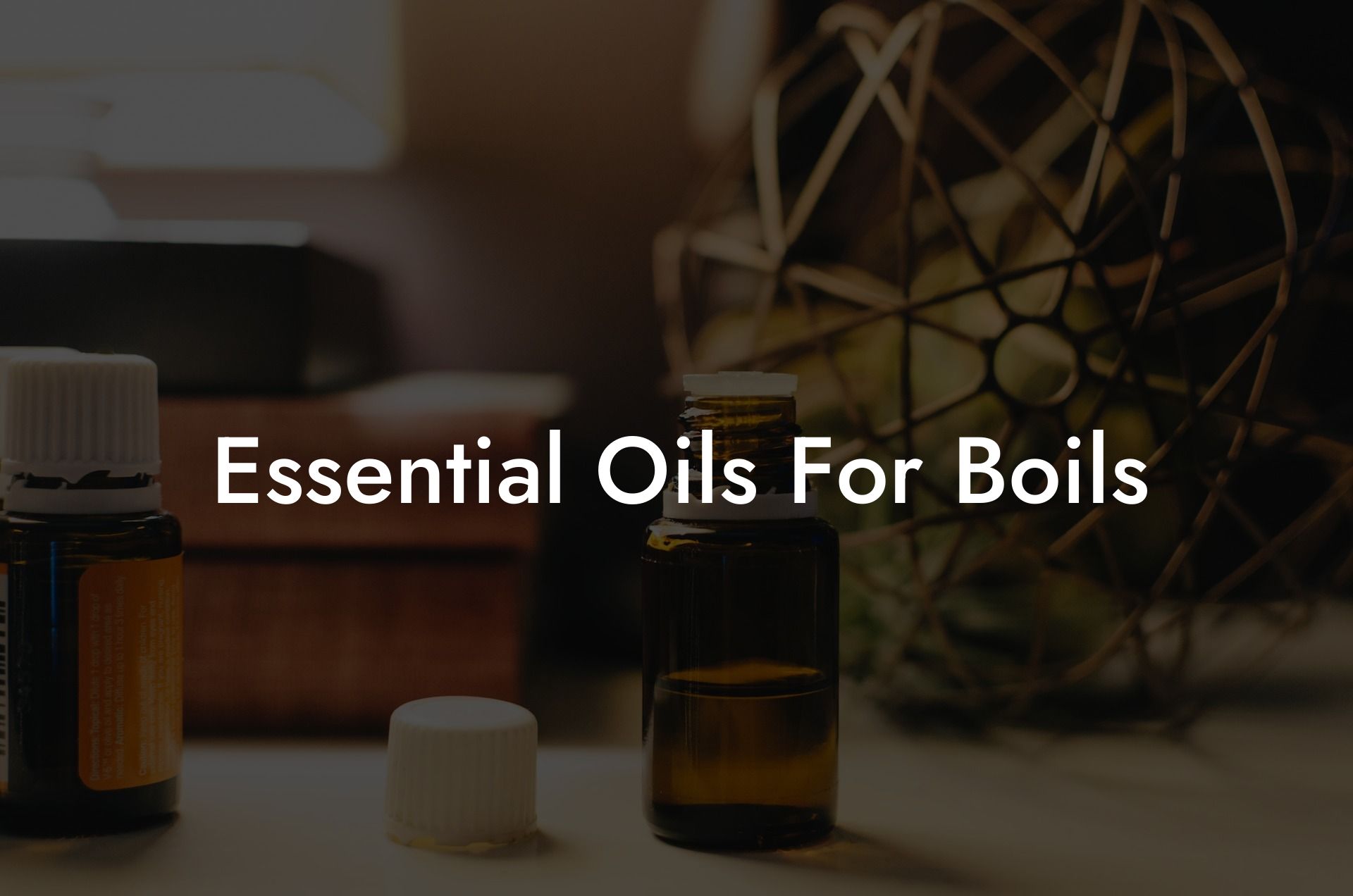Did you know that natural essential oils can be highly effective in managing and treating those pesky boils that seem to appear out of nowhere? As you embark on a journey to essential oils enlightenment, we invite you to discover which oils are the most beneficial for boils, what makes them so powerful, and how to use them appropriately.
Table of Contents
What are Boils?
Boils, also known as skin abscesses, are a localized infection deep in the skin. They occur when staphylococcus bacteria enter the skin, usually through an open wound, sweat gland, or hair follicle. Boils can be painful, swollen, and filled with pus, and if not treated effectively, can lead to further complications.
Essential Oils: A Natural Remedy for Boils
Instead of turning to chemical-laden medication, consider the wonders of essential oils, which possess various antimicrobial, anti-inflammatory, and pain-relieving properties. Here are our top picks of essential oils for treating boils:
1. Tea Tree Oil
Revered for its potent antibacterial and antifungal properties, tea tree oil can help disinfect the boil area and reduce the risk of infection. Its anti-inflammatory action also soothes the pain and swelling associated with boils.
2. Lavender Oil
Not only is lavender oil famous for its calming scent, but it also has excellent antibacterial and anti-inflammatory properties that make it highly effective in treating boils. Plus, it promotes healing and can even reduce the appearance of scars.
3. Eucalyptus Oil
Eucalyptus oil exhibits strong antibacterial, anti-inflammatory, and analgesic properties, making it an ideal oil for reducing pain, inflammation, and infection associated with boils.
4. Frankincense Oil
Frankincense oil is known for its calming fragrance and myriad of skin benefits. It boasts antibacterial and anti-inflammatory properties that help heal boils and can even prevent scarring.
5. Oregano Oil
With its potent antibacterial and antiviral properties, oregano oil can inhibit the growth of bacteria responsible for boils and help prevent infection. But be mindful, as it’s a strong oil and should be diluted more than other essential oils.
How to Use Essential Oils for Boils
When it comes to using essential oils for boils, it’s important to remember proper dilution and application methods to ensure safety and effectiveness.
- Dilute the essential oil: For most essential oils, one or two drops mixed with a carrier oil like coconut or almond oil is sufficient. However, oregano oil requires further dilution due to its potency. Mix two drops of oregano oil in 15-20 drops of a carrier oil.
- Apply to the affected area: Once the oil is diluted, use a cotton ball or swab to gently apply the mixture directly to the boil and the surrounding area. Avoid using your fingers to prevent contamination.
- Repeat up to three times a day: It’s crucial to clean and apply new oil regularly, especially if the boil bursts and exposes the sensitive skin beneath. Generally, applying the oil mixture two to three times a day should be sufficient for most boils.
Essential Oils For Boils Example:
For example, let’s say you have a painful boil on your lower leg that’s causing you extreme discomfort. After diluting tea tree oil with a carrier oil like almond oil, simply dip a cotton ball into the mixture and gently dab onto the boil. Repeat this process twice a day, and within a few days, you should begin to see the boil healing and a reduction in your symptoms.
There you have it! Essential oils are nature’s gift when it comes to battling those painful and irritating boils. If you found this guide helpful, don’t forget to share it with friends and family. Remember to explore our other Oshu Oils guides for more valuable information on essential oils and their vast benefits. And, of course, check out our Oshu Oils range to enhance your essential oil collection and support your journey to better skin health.





















